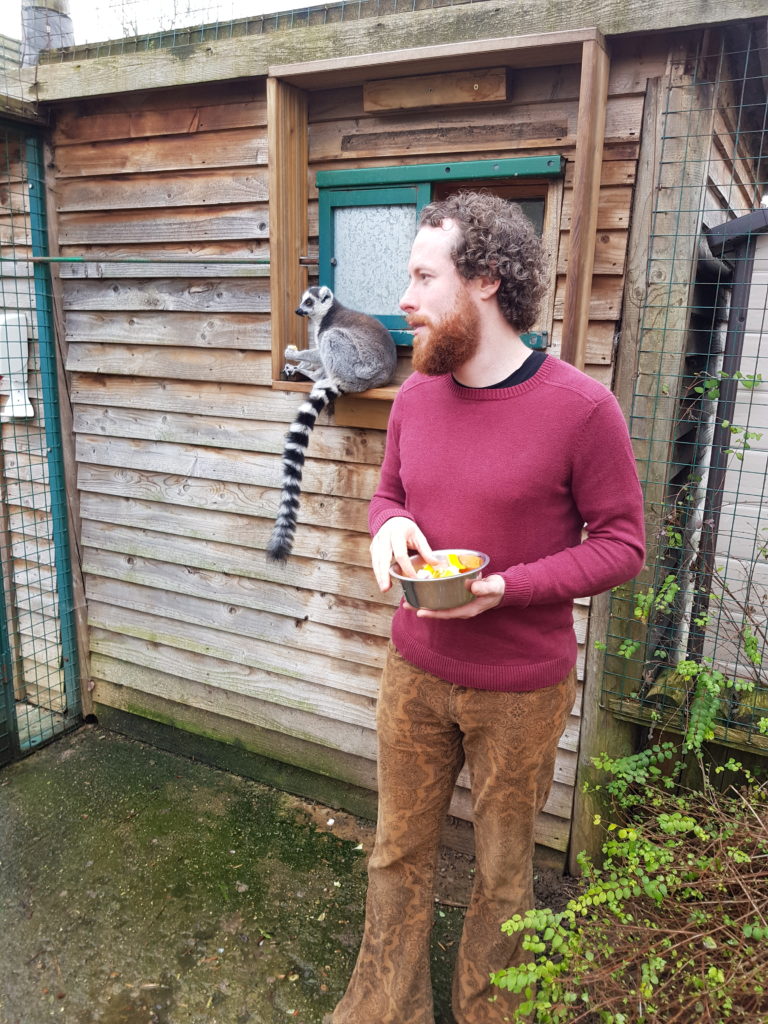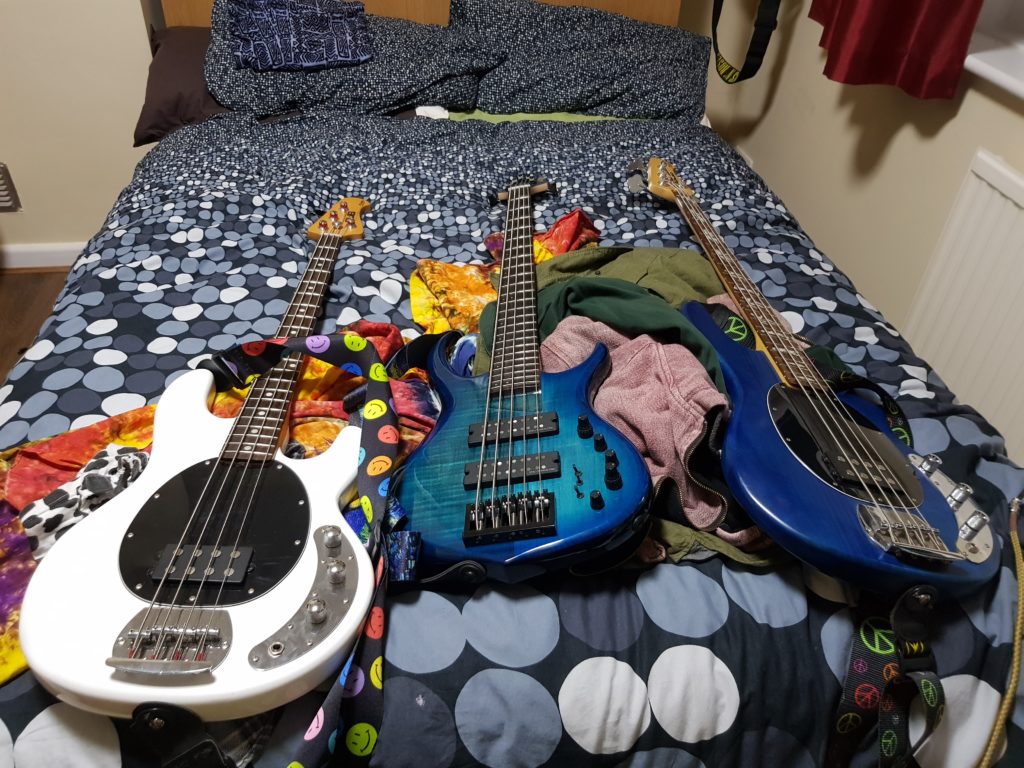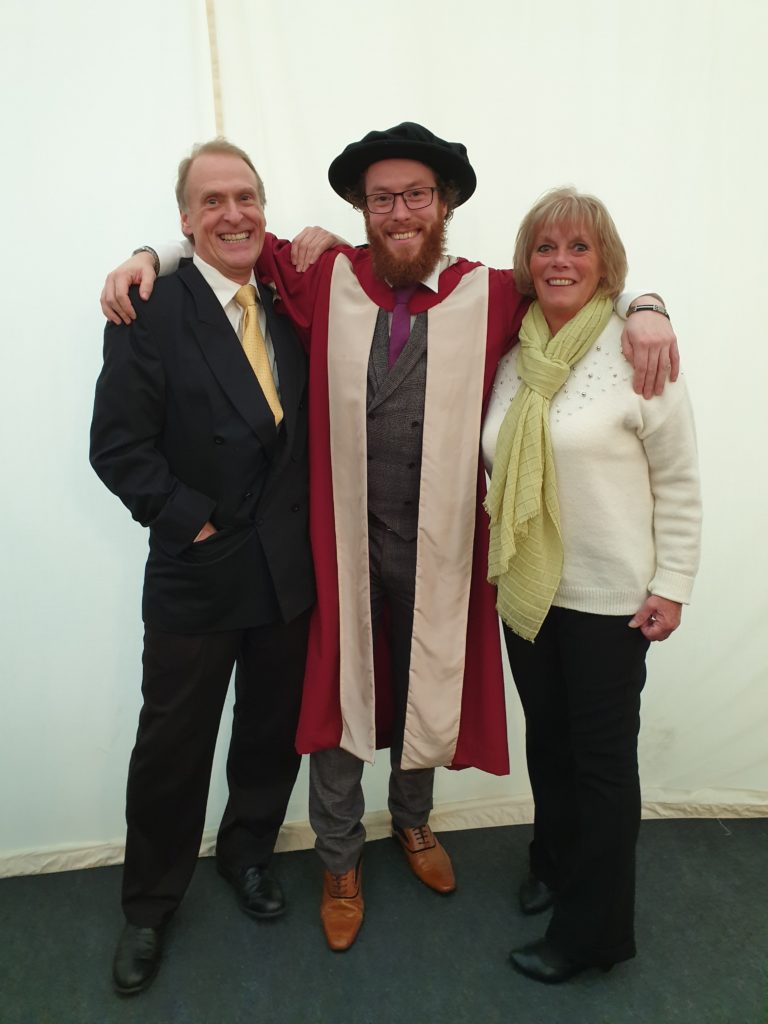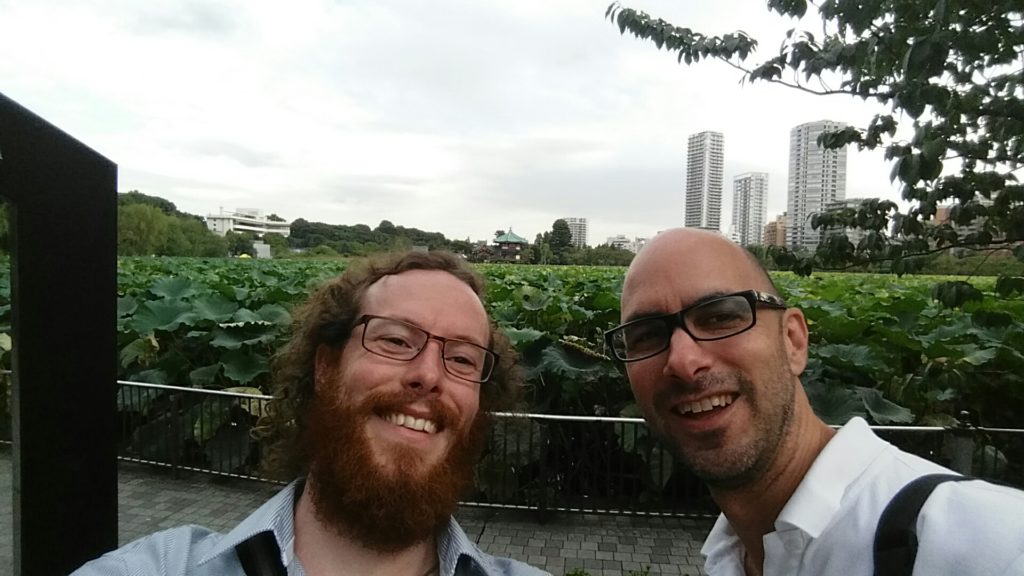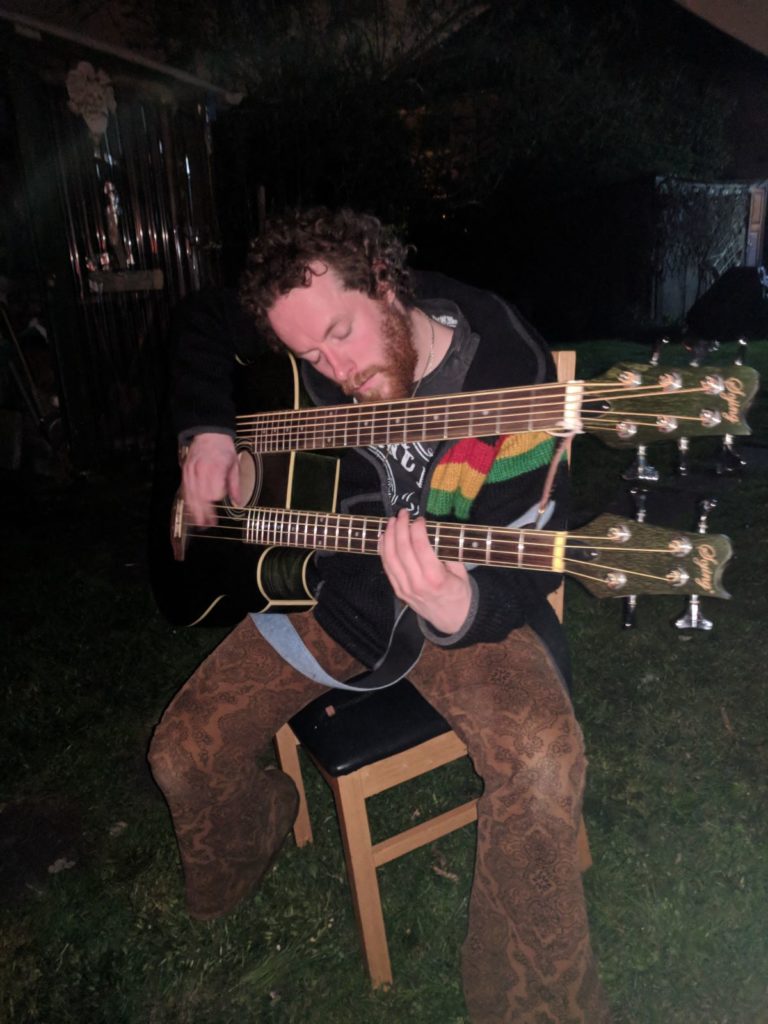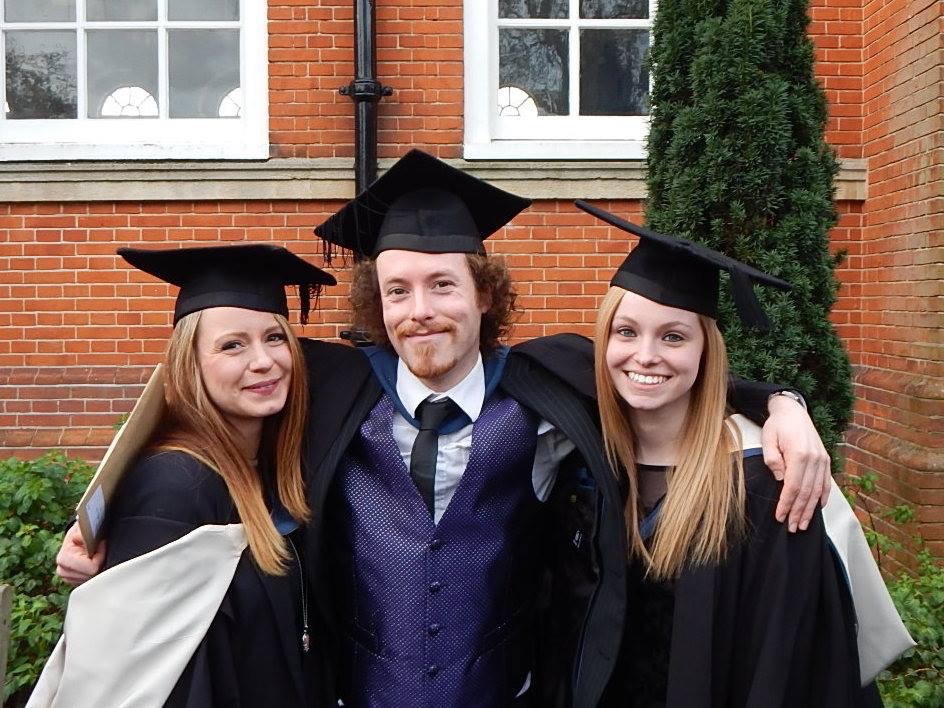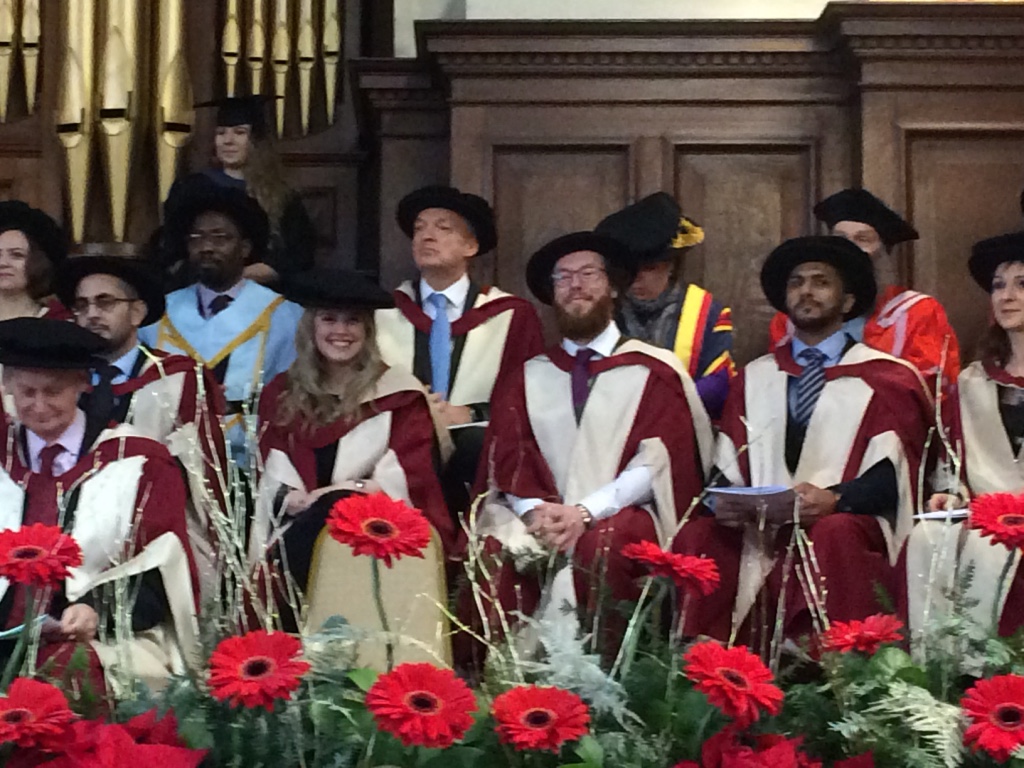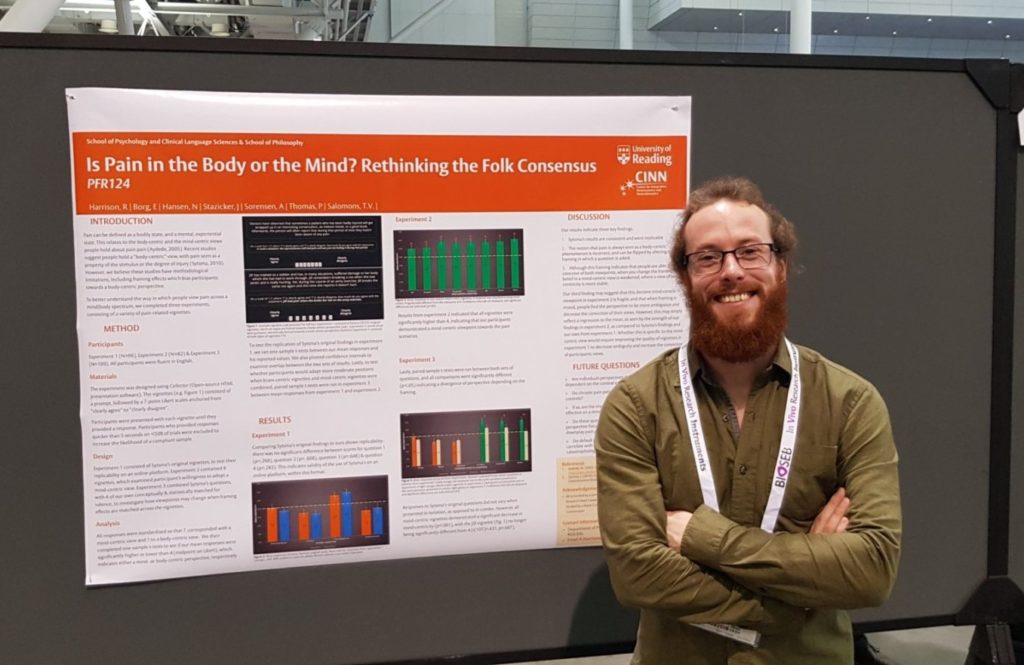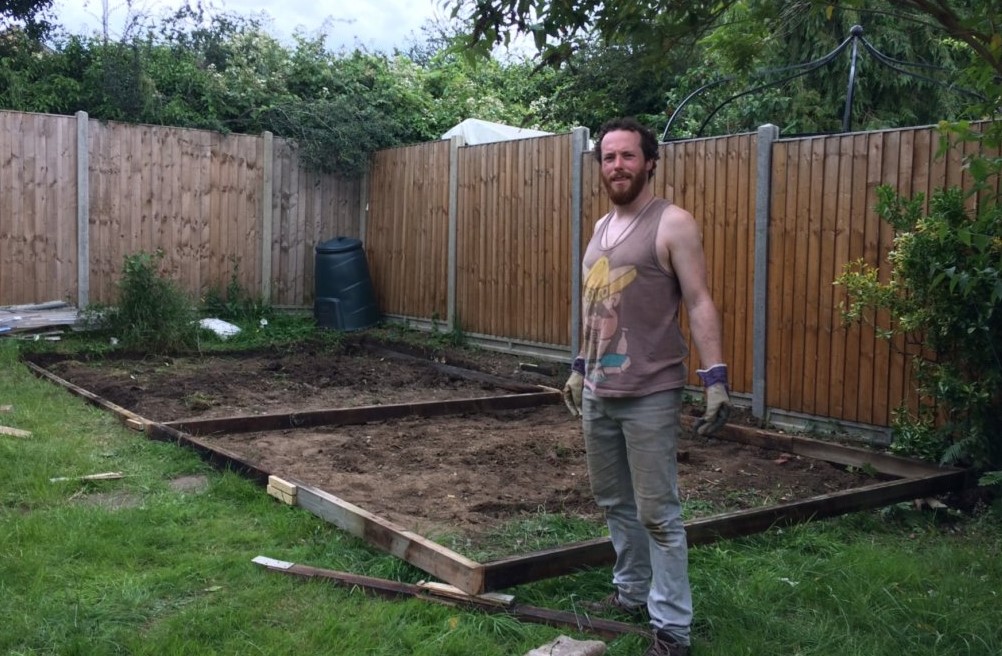A bit about me
Dr Richard Harrison
Post-Doctoral Research Assistant
I am a pain researcher employed at the University of Reading and affiliated with the School of Psychology and Clinical Language Sciences (SPCLS) and Centre for Integrative Neuroscience and Neurodynamics (CINN). My research focuses predominately on pain, examining psychological processes underlying how pain is processed, as well as individual differences in the ability to modulate (or control) the experience of pain.
As pain is a multi-faceted phenomenon, involving sensory, emotional, cognitive and affective dimensions, my research covers a wide breadth in an attempt to understand such a complex topic. I am a firm believer in the utility of inter-disciplinary research, especially when studying pain. Working together with colleagues across an array of skill sets helps improve the relevance and scope of my work, as well as reducing the risk of researching within an “echo chamber”.
My PhD was supported via joint-funding from the University of Reading and Royal Berkshire Hospital. As such, my research is mutually split across laboratory-based investigation, focused on assessment and mechanism, and the clinic, attempting to help improve treatment and stratification of patients.
My laboratory-based work involved creating and calibrating a multi-faceted pain assessment battery, including quantitative sensory testing, MRI-based brain imaging and experiments that quantified the concepts of cognitive- and emotional-based pain modulation. The primary aim of this assessment was to calibrate a pain profile for each of our participants, in which individual differences in pain vulnerability could be identified and the underlying mechanisms investigated.
My work in the clinic has targeted improving current methods of pain assessment in routine care at the Royal Berkshire Hospital. Using our calibrated assessment battery, we are working with the GENESIS project to assess patients undergoing an experimental form of knee surgery for osteoarthritis. The aim of this project is to identify “red flags” within patients’ pain profiles which may help predict those unlikely to experience benefit from the surgery, despite pathological improvement. I also work with the Department of Obstetric and Gynaecology to help understand the presence of severe pain in patients undergoing hysteroscopy, a routine daycase medical procedure previously thought to be associated with no/low pain. Lastly, I am also engaged in developing tools to stratify patients undergoing fibroid embolisation to a daycase pathway, as opposed to general anaesthetic and an overnight stay.
My work at the University also includes collaborations with the Department of Philosophy, to help understand how pain can be viewed as either a body- or mind-state, and how this may influence the way in which patients may benefit from psychological treatment. I also work with the Department of Pharmacy to use magnetic resonance imaging and ultrasound to model the fluid dynamic properties of blood in arteries in the arm. This is currently being developed to help predict the development of stenosis in fistula patients, as well as applying psychometrics to try to predict those that are likely to experience pain and distress as a result of the procedure.
Finally, but very importantly, I am a strong believer in the importance of a healthy work/life balance, especially in an increasingly stressful, competitive and critical academic world! I am a keen bass guitarist having played the instrument since I was 13. Alongside this, I am a frequent attendee of gigs and festivals, as well as an avid collector of vinyl (hipster alert?). Although not nearly as practiced, I’m also an amateur DIY-er, having bought and renovated my dilapidated house over the past 4 years (the PhD evidently was not challenging enough…). My driving force is my family and friends, and socialising is a very important part of my life. I like to think I’ve got a good sense of humour, fully believe in the goodness of people and will always try to help others whenever I can




